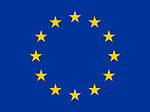Urbanization is an ongoing global trend. The population is more and more concentrating into cities, and city-level decisions hold a remarkable power in bringing smart and sustainable solutions into action all across the world. Besides building new infrastructure and buildings according to sustainability standards, maintenance and renovation of the old buildings are important measures for achieving vibrant, healthy, and sustainable cities.
In most of the cities there are buildings from different decades, or even centuries, and needs for renovation and maintenance are not uniform. City officials are in need tools for decision-making. Knowledge-based decisions in city administration will reduce the risks related to large construction and renovation projects and help to avoid unintended side effects.
One of the BEYOND’s goals, is to provide better informed evidence to local decision makers for optimized energy policy making. In urban contexts, buildings constitute the major energy demand, and instead of forecasting the future energy performance of buildings based on high-level and low granularity metering data, in BEYOND we will focus on developing tools for building demand forecasts of higher accuracy to enhance its predictive capabilities.
The developed tool will provide a more accurate representation of the environmental and energy state in specific urban contexts, and subsequently will enable the better-informed identification of local energy and sustainability requirements. This should eventually lead to more realistic policy measures, which in turn will help cities to achieve mid- and long-term sustainability objectives.
To be able to utilize all the relevant information in decision making, machine learning systems and artificial intelligence are central. Demand and generation forecasting models for different types of buildings will be made available to the impact assessment tool to enable a more representative and realistic impact assessment models and more accurate and robust predictions of the impact achieved by alternative policy scenarios.
The ultimate objective is to support city administration in making the optimal decisions for the timely and effective satisfaction of energy and sustainability set out in local authorities’ action plans for the mid and long-term. Eventually, smart city-level decisions will lead to increased life quality and thriving communities.






